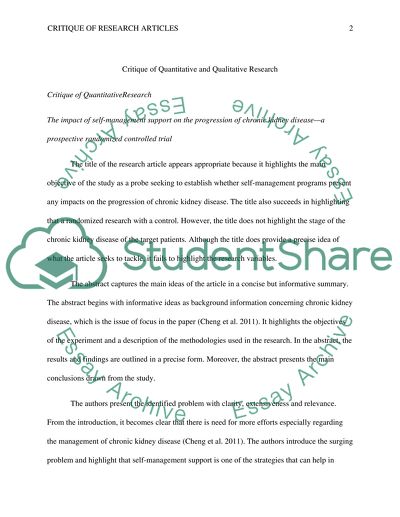Cite this document
(“Citique of Research Studies Paper Example | Topics and Well Written Essays - 1250 words”, n.d.)
Retrieved from https://studentshare.org/nursing/1479335-citique-of-research-studies
Retrieved from https://studentshare.org/nursing/1479335-citique-of-research-studies
(Citique of Research Studies Paper Example | Topics and Well Written Essays - 1250 Words)
https://studentshare.org/nursing/1479335-citique-of-research-studies.
https://studentshare.org/nursing/1479335-citique-of-research-studies.
“Citique of Research Studies Paper Example | Topics and Well Written Essays - 1250 Words”, n.d. https://studentshare.org/nursing/1479335-citique-of-research-studies.


